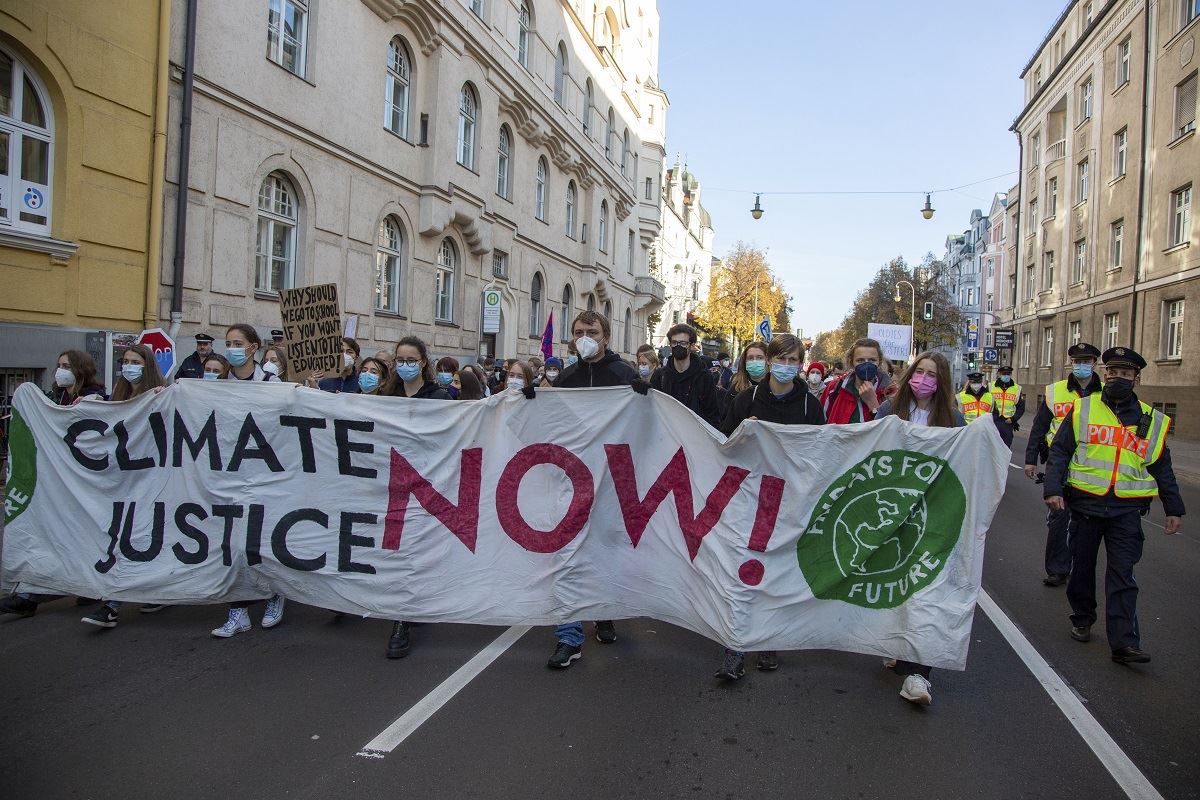
Climate summits are often followed by broken promises. But with a warming globe, staying optimistic and securing new pledges are critical goals for the United Nations Climate Change Conference, known as COP26.
Michael Jantzi, founder of Morningstar ESG ratings firm Sustainalytics, has watched the COP26 proceedings avidly. He tentatively gives this summit a good grade, including the financial industry participants who are attending.
“For all the continuing flaws of finance, when there’s an opportunity to be had, they can move with real speed” to help borrowers and issuers substantially reduce greenhouse gas emissions, Jantzi says. This conversation with Jantzi took place after the COP26 financial day. The following excerpts were condensed and edited for clarity and style.
Q: Finance Day just ended at COP-26. What are some of the wins at the summit?
Jantzi: I can’t separate Finance Day from the first two days. The commitment from private sector finance can’t be viewed separately from the policy and regulatory frameworks. On the first two days, my assessment is positive but the jury is still out.
The India commitment [to cut emissions to net-zero by 2070] was important. The Brazil commitment [to end illegal deforestation by 2030 and become carbon neutral by 2050] was encouraging. Developing nations need to be a part of the transition, but to this point, their participation has been underwhelming, in part because developing nations haven’t carried through on their commitments to help fund that transition. The fact that India has stepped up with a pledge is a good thing, even if it’s for 2070.
The announcement that the U.S., the U.K., France, Germany, and the European Union will provide $8.5 billion to help South Africa transition away from coal is also a good thing. I like some of the initiatives that were not ”energy sector”-specific. On methane, which sometimes get missed in the discussions, 90-plus countries support reducing overall methane emissions by 30% by 2030, although Russia and China were holdouts. On deforestation, there were 100 countries pledging to end deforestation by 2030.
Q: The Glasgow Financial Alliance for Net Zero (GFANZ) suggests its member institutions control enough capital to achieve the conversion of the global economy to net-zero. Some say it’s greenwashing. What's your take?
A: I recognize there are accusations of greenwashing. Those are unfair at this point because it’s acknowledged that net-zero is aspirational, and it’s only commitments that are being made. But if we don’t see meaningful progress soon by those that are making these commitments, which puts the ability to meet net-zero targets into jeopardy, then the greenwashing charges become credible.
I’m encouraged by what I’m hearing about regulatory moves that will allow us to track progress, such as the U.K. talking about the possibility of regulating reporting by issuers on how they’re doing on their net-zero commitments. We all have the authority and responsibility to track that progress. The key players in the global financial markets are at Glasgow in a meaningful way and making public commitments.
It’s only the last couple of COP meetings where the finance community has become recognised as an absolutely necessary player, because without capital, transitions simply can’t happen. So the infrastructure around [financial institutions] seems to be falling into place. For all the continuing flaws of finance, when there’s an opportunity to be had, they can move with real speed. A big change is that sustainability and sustainable finance are now attracting the best and brightest and there will be a lot of innovation here.
Q: Morningstar is part of a group of service providers that are part of GFANZ, right?
A: Our CEO, Kunal Kapoor, has talked about it. As it stands, no government, company, or investor that is signing up has achieved net-zero. Some companies and investors have a decent understanding of what net-zero means and how they get there, others not, and then there’s everything in between.
These initiatives are important not so much because of what they tell us about the state of play today, but when CEOs make a public commitment to achieve net-zero, they’re committing to infuse all relevant products and services from a net-zero angle going forward.
Large financial institutions are committed to use the force of their assets in a more meaningful and comprehensive way than they have been. This is aspirational, no question. But from my perspective, these companies, these blue-chip players, went through a governance process to decide to make this commitment. When you make a public statement, you plant your flag in the ground. It allows individuals and organizations to evaluate you and judge you on a standard that you’ve committed to. It gives investors the opportunity to say, “Hey, you made this commitment publicly because you said it was good for business, and it needed to inform your business decisions going forward. We’re holding you accountable.”
Finally, when we talk about net-zero, it’s not just about carbon or climate. It’s a conversation about a transition of our economy, and many of the business models that underpin it. Make no mistake, I think we’re talking about a mindbogglingly large transition. For many companies, it will mean a fundamental reexamination of what they do and how they choose to position themselves. All companies will experience an impact to their business models. The quicker we figure out which companies will be winners, survivors, or casualties, the better.
Q: One of the announcements at the COP-26 sidelines was by the IFRS Foundation about the development of a new International Sustainability Standards Board. Isn’t this just another addition to the alphabet soup of arcane organisations that do a lot of talking but haven’t solved the problems of sustainability reporting?
A: The critique on poor-quality ESG data is loud. The starting point of addressing that concern is having globally-aligned corporate sustainability disclosures. You know the extent to which Sustainalytics and others go to get that data, but the reality is it starts with good disclosure from issuers. Can you imagine portfolio managers evaluating companies without trusted financial information underpinned by generally accepted accounting principles or international financial reporting standards (IFRS)? It would be folly.
It’s the same now with sustainability. Until this point, we’ve had a hodgepodge of largely voluntary frameworks for disclosure. It’s been a mess, quite frankly. As soon as it became apparent that both issuers and investors need sustainability data, the conversations shifted. It was no longer good enough to have voluntary disclosures from a patchwork of regional initiatives. To get a globally-aligned base with IFRS is really important. IFRS is used in 140 countries and is now embracing sustainability reporting as an important, critical part of the conversation. We can rely on the governance and rigor, which will give sustainability reporting the underlying credibility it needs. This is an historic attempt to consolidate the hodgepodge. It will improve disclosures.
Q: How will it fit in with the Securities & Exchange Commission’s plans to expand climate change disclosures?
A: Gary Gensler, the SEC’s chair, sits on the board of directors of the International Organization of Securities Commissions, which brings together the world’s securities regulators. Both IOSCO and the SEC are embedded into the formal governance structures of IFRS. One can surmise that the announcement that the Value Reporting Foundation and the Climate Disclosure Standards Board are merging into IFRS wouldn’t have happened without at least the tacit approval of the SEC.
From an issuer and investor perspective, all these organizations have been hearing in a loud and unified voice that disparity in sustainability reporting doesn’t work anymore. We need globally aligned standards. I believe the SEC has also heard that loud and clear from U.S. companies and global investors that they don’t want SEC standards that are drastically misaligned.
Q: What worries you about this conference?
A: I’m worried about the U.S. We talk as though the significant challenges we faced with our former administration--like pulling out of the Paris Agreement--are behind us. Although we’ve seen a meaningful and important change in tone and proposed direction, the Biden administration seems to be struggling on a number of fronts. Its infrastructure bill is being held hostage by a senator from a coal-producing state, and the Build Back Better plan may not get implemented. President Biden was circumspect at COP. I’m not convinced that U.S. actions, at the federal government level anyway, are going to match some of the net-zero promises and well-intentioned rhetoric.











:quality(80)/cloudfront-us-east-1.images.arcpublishing.com/morningstar/6BCTH5O2DVGYHBA4UDPCFNXA7M.png)

















